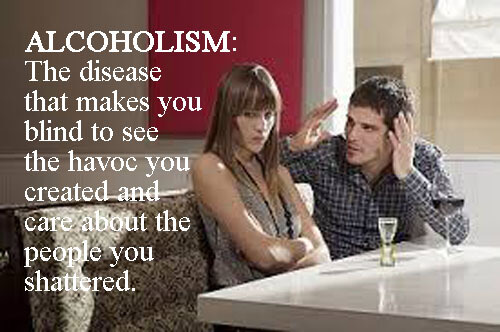Treating Alcohol With Couples and Marriage Therapy

Alcohol Use Disorders (AUD) come in two general forms, or levels: Alcohol abuse and alcohol dependence. Alcohol abuse refers to a problem pattern where the drinking interferes with work, school, or home life, as well as where the drinking is hazardous, such as in driving an automobile or operating machinery. Or, the problem may generate difficulties with the law, with the spouse or family, or in the social realm—such as getting into fights.
Alcohol dependence can include any or all of the above, but it is even more serious. The person may be unable to stop or control the drinking. There may be “tolerance” (having to increase the drinking amount to get the same effect), or “withdrawal” (having physical symptoms when drinking is stopped or decreased).
Drinking problems take their serious toll not only on the drinker, but also on everyone else around, particularly the close family members. It clearly affects negatively the nature of family and couple relationship. Therefore, it is important to get treatment as soon as possible otherwise the situation will probably get worse. Depending on the severity of the Alcohol problem, the person may have to be detoxified—”dried out.” In some cases, the drinker may have medical or withdrawal problems that require hospitalization for detoxify.
Marriage and family therapy in case of alcohol problem is difficult and complex. Evidence indicates that involvement of a nonalcoholic spouse in a treatment program can improve patient participation rates and increase the likelihood that the patient will correct drinking behavior after treatment ends. Accordingly, couple and family therapy can help the users and their loved ones deal with the stresses of withdrawal, relapse, figuring out available treatments, and deciding on the best options. Couples therapy acknowledges the reciprocal interaction between alcohol misuse and relationship problems. It views partners as critical to the recovery process, and targets both alcohol and relationship issues as areas for change. In this regards, the therapist needs to help people understand how the drinking affects the family and vice versa, and at the same time be able to identify what led to the drinking problem.
There are various approaches to marital family therapy. The three main approaches are the family disease approach, the family systems theory approach, and the behavioral approach. The family disease approach assumes that alcohol dependence is a disease and that family members also suffer from a disease known as co-dependency. Abstinence and acceptance of the disease are emphasized as the route to recovery.
Family systems theorists view alcohol dependence as a symptom of some type of family dysfunction. Members of the family behave in a manner which helps them adjust, but are, without knowing, maintaining the problem. Family systems therapists usually meet with the person with the alcohol use disorder and his/her family members to try and change patterns of behavior and communication within the family, which are thought to result in sobriety and family healing.
The third approach is a behavioral approach, which assumes that family members can reward sobriety and that alcohol dependent people from happier families with better communication have lower risk of relapse. Behavioral couple therapy combines a focus on drinking with efforts to strengthen the marital relationship through shared activities and the teaching of communication and conflict resolution skills. Some therapists may combine couples therapy with the learning and rehearsal of a relapse prevention plan. The combination approach seems to improve marital relations and higher abstinence rates among alcoholics with severe marital and drinking problems.





